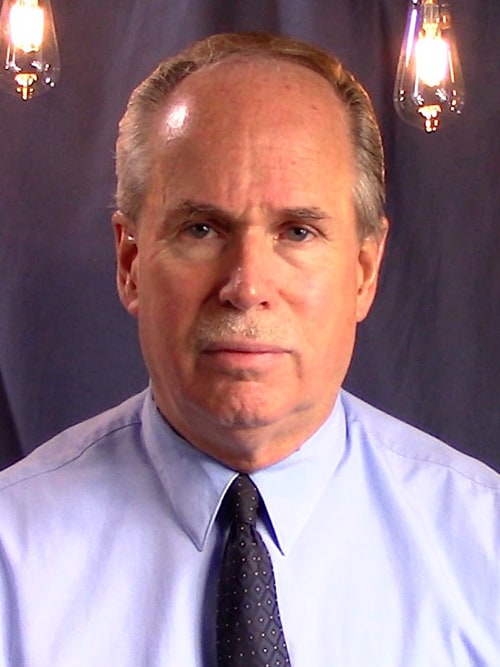There is a tremendous and completely ingenious capability inherent in our humanity that exceeds our wildest expectations. Sadly, we have dumbed ourselves down to the point that we have compromised, and in many cases altogether forfeited these marvelous capabilities. In doing so, our conviction regarding our capability is marginalized to near extinction because we no longer see it, and therefore we no longer believe in it.
We then function exclusively within the realm of these diminished capabilities as they have mistakenly become our realities. As we do, these diminished capabilities slowly (or sometimes not so slowly) become the whole of our personal identity. We become convinced that we are what we have now chosen to become. Therefore, by our own design we live out brutally marginalized lives wherein we eke out a terribly substandard existence that we are convinced represents the best of who we are.
The Effect on Our Roles
Aside from the disastrous effect on us, the places where these behaviors are the most catastrophic are in the roles that we play. It is within the intimacy of these roles that these choices are most likely to negatively impact those whose lives we play these roles in. If we have effectively bred this sense of diminished capabilities into ourselves, we are delivering a terribly diminished service to these very individuals. In turn, it is likely that these behaviors will in some form be transmitted to these individuals, effectively and sadly passing onto them what we have tragically allowed into our lives.
The Role of a Parent
The most impactful role that undoubtedly leverages the most influence on another is that of a parent. The raw power wielded by a parent is unfathomable. Pastor Roy L. Smith articulated it well when he wrote, “We are apt to forget that children watch examples better than they listen to preaching.” The example of a parent imprints an indelible stamp on the life of the child unlike any other, leaving a distinctive imprint on their lives for the whole of their lives. So utterly potent is this power that it can survive centuries beyond the life of the parent, fundamentally shaping numerous generations yet unborn.
The Effect on Parenting
Impact on the Child
If the parent carries this personal sense of diminishment, they will in turn transmit this to their children. In doing so, we will spawn generations of individuals whose capabilities will never be realized, (much less achieved) simply because they have no idea that they possess such capabilities. In a sense, we will raise handicapped children who have no handicap other than the conviction that they believe they do.
Impact on Parenting
The influence on the specific kind of parenting impacted by this personal sense of diminishment is multiple and varied. Parents can abdicate their responsibilities, believing that they are not sufficiently capable of being fully effective, leaving children to largely raise themselves. Parents can be so caught up in their own issues and inadequacies that they are not attentive to the needs of their children due to the fact that they’re completely engulfed in their own needs. Often parents project their frustrations on their children as they have not been able to understand their issues or develop other more effective outlets. Parents live regretting being parents, or pawning their children off on daycares and nannies, or expecting children to be self-sufficient far in advance of the maturity to do so.
Impact on the Parent
To add insult to injury, parents themselves remain horribly stunted, living out compromised lives which are ineffectual in assisting the children as they themselves move into adulthood. With the role of parenthood closing down and children eventually exiting the home, the parent is left with a sense of futility regarding where they have been and where they are going. The inability to parent the children while they were young leaves the parent woefully ill-equipped to be a support to them as they launch.
Impact on the Future
Often a parental reversal takes place where the adult child now attempts to parent the aging parent. Sadly, these adult children have not been equipped by the parent to effectively play such a role. Fortunately, the role of grandparent differs sufficiently in that the aging parent can more effectively fulfill that role with its diminished demands and lesser obligations. However, adult children are often resentful in that their children are receiving the love and attention that they desired from their parents.
A Place to Begin
First, it is imperative to begin the process of developing the understanding that we are more than what we have come to believe ourselves to be. That belief is horribly difficult to embrace simply because we don’t see that which we are being asked to believe. We must begin by ‘entertaining’ the possibility (or more likely probability) that we have embraced a diminished sense of self that does not represent our authentic selves. In essence, we begin with a gradual but intentional shift in mindset.
Second, we begin to slowly act on that mindset. In essence, we risk being who we really are. We act on those things that we wish were true but have come to doubt simply because there is a good chance that the ‘wishing’ is in fact the truth about ourselves that we have submerged. If we risk being who we really are, we are likely to experience success in doing so. This success then reinforces the sense that we are more simply because we have let ourselves be more and (to our surprise) in some fashion it worked.
Third, we find sustained motivation in undertaking these tasks by understanding the incalculable impact of these changes on ourselves and our children. We are changing to change generations. We are stepping up so that those who follow us can step out. We are leaving the legacy that we were born to leave, rather than birthing a legacy that we wish would leave us. And if we think about it, is this not the very thing that parents are called to do and at some deep level have a pressing passion to do.
Conclusion
We raise our children by raising up ourselves. We set the foundation of the next generation by first constructing that foundation in our own lives. And second only to serving God and loving our spouses, I can think of no greater calling to fulfill. May you be enriched as you implement these steps and step into this most honored calling.

 Craig Lounsbrough
M. Div., LPC
Craig Lounsbrough
M. Div., LPC